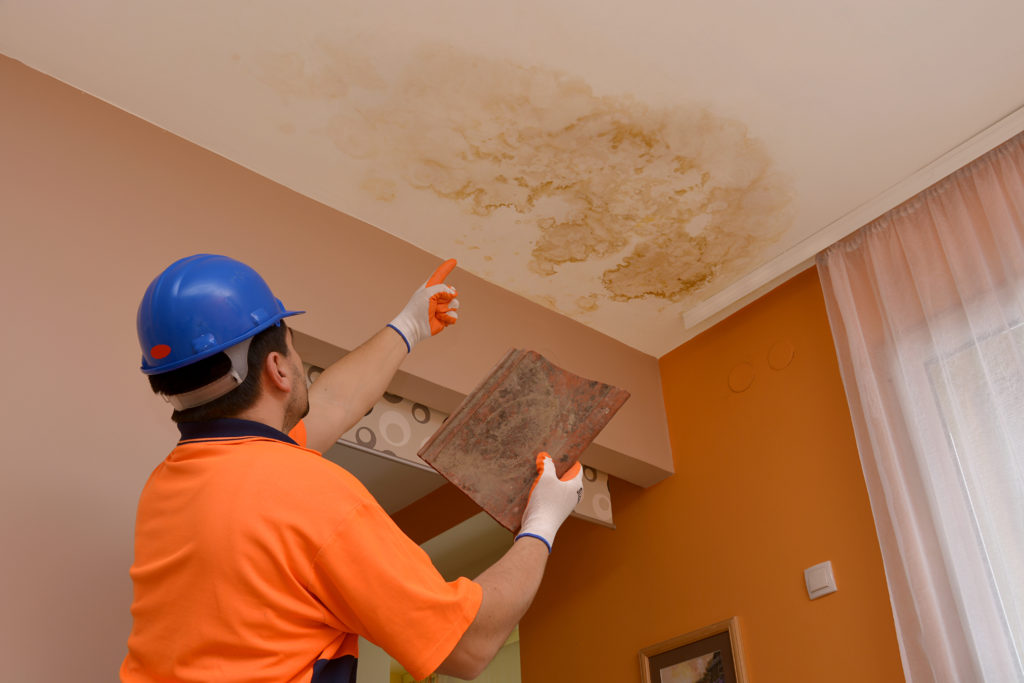
Melting Snow and Ice Means Water … and Odor
Most Coloradans know well enough the dangers of the rugged state’s seasonal changes. Winter brings snow and ice and the potential for frozen, broken pipes. Spring brings the thaw, which can turn to flooding when seasonal rains get heavy and join forces with the melting runoff.
As the winter season comes to an end and temperatures begin to rise, the melting snow and ice can bring an unpleasant surprise: a foul odor. This odor can range from a musty smell to a more pungent, rotten egg-like stench. While it may be unpleasant, it’s important to understand the causes and take steps to prevent it
It doesn’t take a disaster to create odors. And odor problems can arise weeks or even months after your property is restored after water or other damage.
Causes of Odor from Melting Snow and Ice
To understand how odors can stealthily creep into your property, you need to understand what causes odors. Essentially, odors are your olfactory system’s signals in response to microscopic particles or gas or vapor in the air you breathe.
The primary cause of the odor associated with melting snow and ice is the decomposition of organic matter. During the winter months, leaves, grass clippings, animal waste, and other organic materials can become trapped beneath the snow and ice. As the snow and ice melt, these materials are exposed to warmer temperatures and moisture, creating the perfect environment for bacteria and other microorganisms to thrive.
The decomposition process releases gases, such as hydrogen sulfide, which has a characteristic rotten egg smell. Other gases, such as methane and ammonia, can also contribute to the unpleasant odor.
Additional Factors Contributing to Odor
- Stagnant Water: Melting snow and ice can create pools of stagnant water, which can further promote the growth of bacteria and the release of foul-smelling gases.
- Road Salt: Road salt used to de-ice roads and sidewalks can also contribute to the odor. As the salt dissolves in the melting snow and ice, it can create a brine solution that can kill vegetation and contribute to the decomposition of organic matter.
- Sewage and Septic Systems: In some cases, melting snow and ice can reveal leaks or overflows from sewage and septic systems, which can also cause a strong odor.
Additional circumstances that can result in noxious odors can include:
- Chemical spills
- Dead animals in walls or crawl spaces
- Rotten food
- Mold or other fungal growth
- Standing water
- Fire or smoke damage
- Sewage leaks or spills
Preventing Odor from Melting Snow and Ice
The particles and substances that cause odors can permeate and become trapped in any porous material, including furniture, paint, wallpaper, carpets and rugs, even books. So its important to locate and understand the source of odors and have the knowledge and tools to safely and effectively eliminate them.
While it may not be possible to completely eliminate the odor associated with melting snow and ice, there are several steps you can take to minimize it:
- Clear Debris: Before the winter season, clear your yard of leaves, grass clippings, and other organic debris. This will reduce the amount of organic matter that can decompose beneath the snow and ice.
- Manage Pet Waste: If you have pets, promptly clean up their waste to prevent it from contributing to the odor.
- Improve Drainage: Ensure that your property has proper drainage to prevent the formation of stagnant water.
- Reduce Road Salt Use: Use road salt sparingly and consider alternative de-icing methods, such as sand or kitty litter.
- Check for Leaks: If you notice a particularly strong odor, check for leaks or overflows from sewage and septic systems.
While the odor from melting snow and ice can be unpleasant, it is a natural part of the seasonal transition from winter to spring. By understanding the causes and taking preventative measures, you can minimize the odor and enjoy the warmer weather.
Abbotts odor elimination specialists use technology and experience to identify the causes of odors, remove them, then completely disinfect areas where odors were trapped. We can eliminate even the worst odors, thoroughly cleaning up and deodorizing mold, crime scenes, decomposing animals, sewage spills, hoarding filth and more. Call us anytime, any day, and we’ll be on the way.

